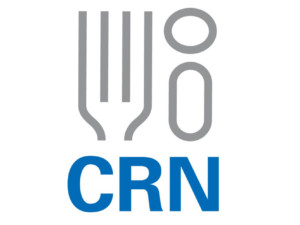
The Council for Accountable Diet (CRN) launched choose findings from its 2024 Client Survey performed by Ipsos.
This yr’s survey reported 75 p.c of Individuals proceed to make use of dietary dietary supplements, demonstrating the continuing position dietary supplements play in well being and wellness, in line with the affiliation. Nonetheless, the survey additionally highlighted refined shifts in product decisions.
In response to the report, utilization of particular dietary supplements, resembling magnesium, prebiotics and ashwagandha elevated in comparison with earlier years. Magnesium rose from 19 p.c in 2023 to 23 p.c in 2024, prebiotics rose from 5 p.c in 2023 to 7 p.c in 2024, ashwagandha rose from 2 p.c in 2020 to eight p.c in 2024 and melatonin rose from 10 p.c in 2020 to 16 p.c in 2024.
Belief within the security and efficacy of merchandise stays excessive and individually 91 p.c of customers affirm dietary supplements are important to sustaining their well being. In response to the report, almost 80 p.c desire dietary supplements versus over-the-counter or prescription medicines. Model loyalty additionally continues to be an indicator of the business with 71 p.c of customers expressing loyalty to their chosen manufacturers.
General spending on dietary supplements remained in line with the median month-to-month expenditure at $48 in 2023 and $50 in 2024. The first motivations for complement use stay unchanged from 2023 with 42 p.c persevering with to quote general well being and wellness. Immune well being and vitality stay essential components, in line with the report.
In response to the report, the curiosity in personalization stays sturdy with 69 p.c of complement customers emphasizing the significance of a customized routine. Customers below age 55 and Black and Asian Individuals are particularly prone to say a customized routine is essential when selecting dietary supplements.
Lastly, the survey discovered complement customers are typically extra prone to report taking part in wholesome behaviors. Common customers usually tend to report visiting their physician recurrently and making an attempt to eat a balanced food regimen. Moreover, 41 p.c of non-users cite lack of perceived want and 27 p.c cite value as boundaries. Regardless of a secure general belief in dietary supplements, non-users report decrease ranges of confidence in effectiveness and security in comparison with prior years, in line with the report.
“The soundness in complement use displays the enduring belief that buyers place in our FDA-regulated business,” mentioned Jeff Ventura, senior vp of communications at CRN. “On the identical time, we proceed to see customers exploring new specialty merchandise and embrace customized well being options. This speaks to the evolving panorama of wellness, the place dietary supplements have gotten extra built-in into individualized well being practices.”
For extra data and to learn the complete report, go to www.crnusa.org.




![[The Vitamin Professor Podcast] Lesson 15: With Dr. Jonny Bowden, PhD.](https://fitnessclerk.com/wp-content/uploads/2025/02/vre-nie-npr-2025-02-podcast-1-350x250.jpg)






